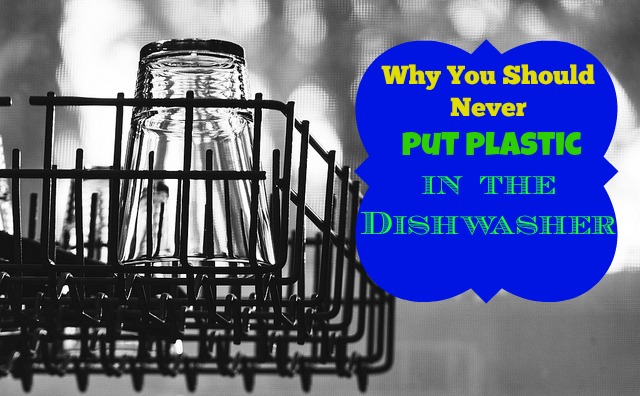Have you ever accidentally opened your dishwasher in the middle of a cycle? It’s like an instant facial. The steam and heat emitted are enough to make you jump back and close the door quickly.
The water is hot so your dishes are cleaned with minimal elbow grease. Did you know the water must be at least 120 degrees Fahrenheit and not more than 150 degrees Fahrenheit for the best cleaning and to prevent damage to the dishes? That’s hot water!
What do you put in your dishwasher?
We have a relatively new dishwasher and for some reason it seems smaller than our older version. I still do my best to jam as many dishes into the dishwasher as I possibly can for a single load. Everything from plates to glasses to flatware goes right in without much of a rinse.
Over the years I’ve really weaned myself off of plastic in the kitchen. I’ve tried hard to reduce the amount of plastic touching our food in any way. For the few plastic items still remaining, they get washed by hand.
My rule: never put anything plastic in the dishwasher. And here’s why….
Heat and plastic are a bad mix
Repeated wear and tear on plastic, including running plastic through the dishwasher, could cause BPA, Phthalates and other chemicals to leach out of the plastic when heated.
Hormone-disrupting chemicals leach from almost all plastics [2], even BPA-free plastics. Heating the plastic (stressing it) may cause more leaching of the chemicals.
Phthalates
Phthalates [3] are chemicals used as softeners or plasticizers in polyvinyl chloride (PVC, vinyl) products and can be found in hundreds of products: pre-2009 toys, wallpaper, cling wrap, shower curtains, plastic PVC containers, nail polish, perfume, blood bags, cosmetics, personal care products, shampoos, carpeting, wood finishes and insecticides (the list could go on and on).
Phthalates have been shown to disrupt hormone activity, reduce sperm counts and some preliminary studies show that they may be causing a slow and steady demasculinizing of men. Other studies have linked phthalates to liver cancer and breast cancer.
Unfortunately manufacturers aren’t required to list phthalates on products. Look out for “PVC,” “V” or the”3″ recycling code on the bottom of anything plastic.
BPA
As many of us know by now BPA is bad news. It’s a hormone-disrupting chemical [4] that’s been linked in lab studies to breast and prostate cancer, infertility, early puberty in girls, type-2 diabetes, obesity and attention deficit hyperactivity disorder.
And if that wasn’t enough there’s more: “BPA-free” doesn’t mean it’s safe [5]“. As new alternatives to BPA are popping up all over the place we have little information about their impact on our health.
The Bottom line
Hormone-disrupting chemicals leach from almost all plastics [2], even BPA-free plastics.
Plastics are more likely to leach toxic chemicals when they’re heated or exposed to light.
I think I would rather hand wash plastics than risk those nasty chemicals leaching into my food. How about you?
Are you ready to hand wash those plastic dishes?
P.S. If you liked this post you might enjoy our Groovy Green Livin Newsletter [6]. Receive new posts and special opportunities delivered right to your inbox! Sign up HERE [6].
